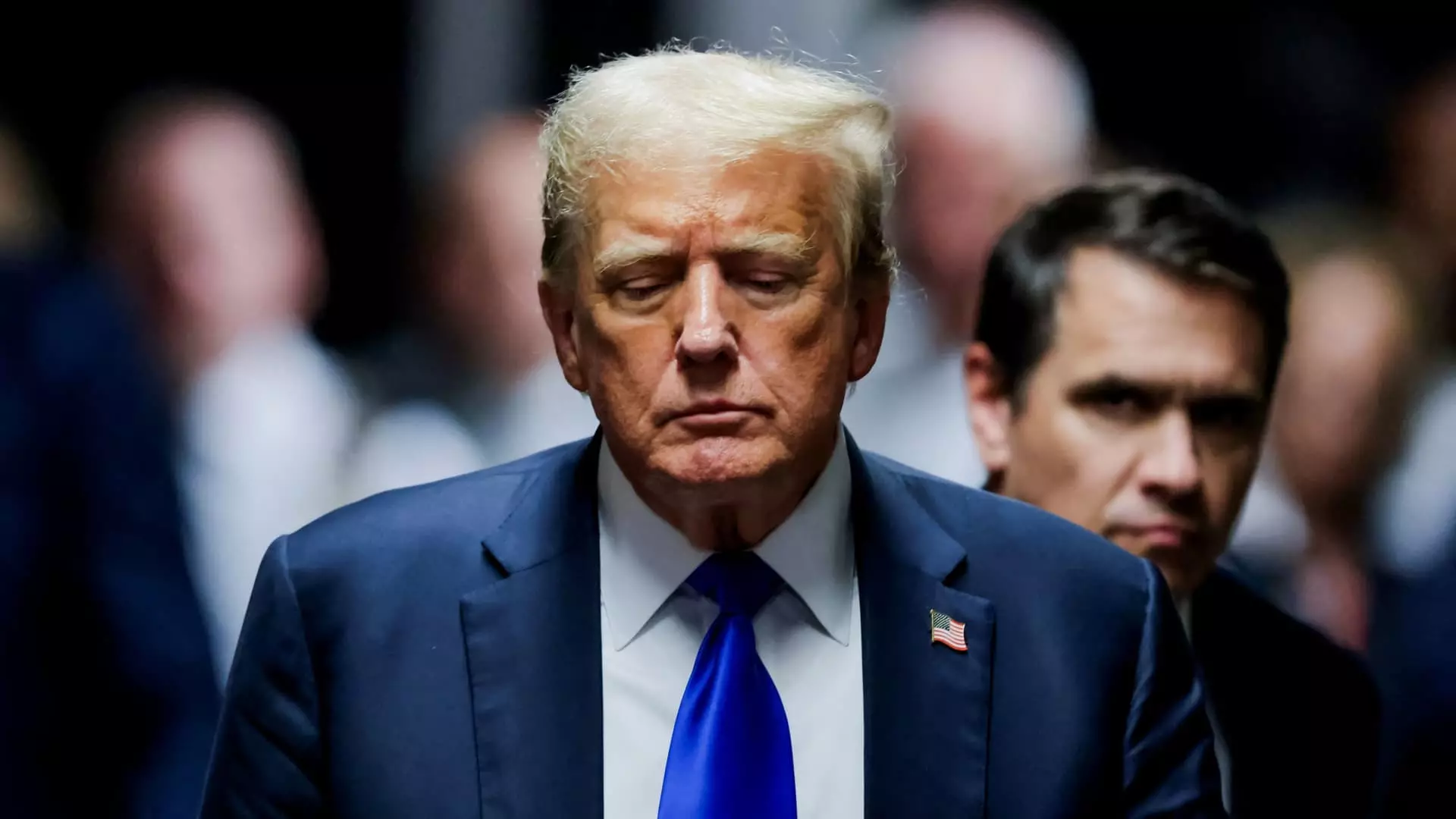The recent legal battles of former President Donald Trump have unraveled a complex tapestry of legal, political, and constitutional issues surrounding presidential immunity. This article delves into the recent ruling by Manhattan Supreme Court Judge Juan Merchan, who rejected Trump’s pleas to dismiss charges related to hush money payments made during the chaotic 2016 presidential election cycle. By dissecting the implications of this case, we can better understand the intersection of legal proceedings and executive authority.
The controversy centers around a $130,000 payment made by Trump’s former attorney, Michael Cohen, to adult film actress Stormy Daniels. This payment, allegedly aimed at silencing claims about an affair that Trump has consistently denied, has thrust Trump into a precarious legal position. The Manhattan District Attorney’s Office brought forth 34 felony counts accusing Trump of falsifying business records, alleging that he improperly classified the reimbursements to Cohen in a way that concealed the purpose of the payments.
The crux of the issue lies in whether Trump’s actions—conducted during his campaign—can indeed be classified as official presidential conduct deserving of immunity from prosecution. Trump’s legal team has vigorously argued that his presidential status should confer some level of immunity, referencing a recent U.S. Supreme Court ruling that posits presidents receive presumptive immunity for actions undertaken while in office.
Judge Merchan’s ruling is noteworthy as it firmly dismisses the argument for presidential immunity in this context. He asserted that even if the contested evidence could be seen as falling within the scope of presidential authority, the nature of the acts—particularly falsifying business records—remains personal and thus should not shield Trump from legal accountability. In his 41-page decision, Merchan indicated that the evidence presented was overwhelming, stating any errors regarding its introduction were “harmless.”
This raises significant questions about the limits of presidential immunity. Can the implications of executive privilege extend to acts perceived as personal, however intertwined they may be with public office? Merchan’s ruling suggests a critical distinction: certain conduct cannot be cloaked in the protections afforded to presidential actions simply because a sitting president executed them, particularly when those actions involve personal wrongdoing.
The repercussions of this ruling extend beyond the courtroom. Trump’s transition spokesperson, Steven Cheung, characterized the proceedings as a “witch hunt,” aligning with a broader narrative employed by Trump’s supporters that views the legal actions against him as politically motivated. This framing has fostered a deep polarization in public perception—many supporters vehemently decry the prosecution as unjust, while critics emphasize the importance of accountability, regardless of one’s status.
While Trump’s legal troubles continue to unfold, they also form a landscape rife with implications for future presidencies. The way courts interpret and enforce the boundaries of presidential immunity today may set precedent for future political figures navigating similar murky waters. If the judiciary can intervene in instances that blur the lines between official conduct and personal misconduct, it leaves open the distinct possibility that no president is entirely insulated from prosecution.
As the legal battles press on, the implications of this ruling go beyond Trump’s immediate fate. It presents a complex interplay between accountability and authority that could influence how future presidents operate. With the potential for prosecutions of previous officeholders to become commonplace, establishing clear parameters around executive immunity will be essential for maintaining the balance of power.
Moreover, shifting the narrative from a perception of invulnerability to one of accountability may reshape the standards by which public officials conduct their business, potentially leading to greater transparency and ethical governance in the long run.
The battle surrounding the hush money payments is emblematic of a larger struggle between legal accountability and executive power. As we await further developments in Trump’s case, the outcomes may well redefine the limits of presidential authority and accountability for generations to come.


Leave a Reply